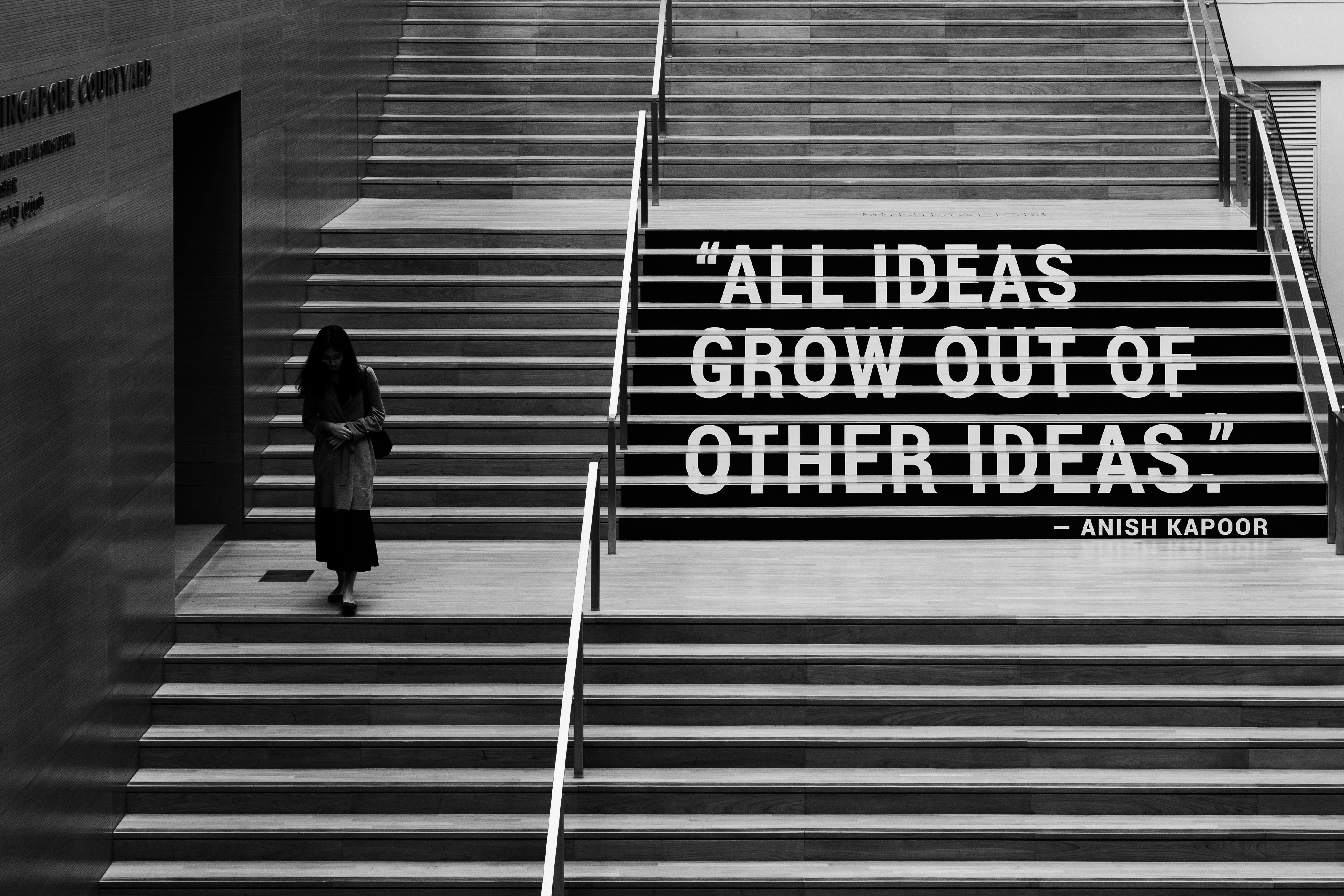This week's best things
A roundup of the best things that I've been sent, read, seen, or heard over the past week. Articles on falling in love with AI, unexpected collaboration, the psychological impact of listening and more
I used to publish a monthly links roundup but it became a bit of an overwhelming task, so I am switching to a shorter weekly roundup of good things that I’ve found on the internet.

Can AI learn to love — and can we learn to love it?
Seemingly every other article on the whole internet is about AI at the moment. But this Vox piece (part of their series “the rise of artificial intelligence, explained”) focuses on the growth of AI entities that humans might fall in love with. It is genuinely fascinating, and more than a little unsettling.
It looks at how these things have existed on film, covering Spike Jonze’s Her, Stanley Kubrick’s A.I. Artifical Intelligence, Alex Garland’s Ex Machina among others, alongside an explanation of CarynAI, the ‘AI clone’ of influencer Caryn Marjorie.
Bonobo and Anna Lapwood perform Otomo at the Royal Albert Hall with a 9,999 pipe organ
This went a bit viral last year so you may already have seen it but even if you have I’d urge you to rewatch it. Particularly if you haven’t seen this splitscreen video of the performance which shows the absolute delight on Anna Lapwood’s face as she deploys the full force of the Royal Albert Hall’s pipe organ to close Bonobo’s set.
It’s a brilliant collaboration and performance, even if you don’t normally listen to electronic music, or organs.
The story of how the collaboration came about is just as great: “I often do middle-of-the-night practice sessions at the Royal Albert Hall , and have grown rather fond of hall staff calling up to the organ with requests. At 1am on Friday 20th, someone called up asking me to play Bach's Toccata in D minor. It turned out it was Bonobo's band. 12 hours later they had written me an organ part, and 18 hours later I was helping them close their show to an audience of 5000. This was, undoubtedly, the best moment of my life so far...!”
Do you think more clearly when reading or when listening?
This article is a really interesting exploration of how the way we receive information affects how we think about it.
“If the way a person thinks about incoming information is based only on the content itself, then it should not matter whether they hear or read it. But in recent experiments, we have found evidence that this seemingly inconsequential choice of modality does have an impact on how people reason.”
Essay #3: Justice is Fundraising
Owais Lightwala and Sarah Garton Stanley are writing a series of essays and provocations.
Sarah’s most recent essay is a provocative, thoughtful, insightful read. She writes directly and clearly about the cultural sector’s relationship with money - specifically funding, and how she thinks this should shift.
Sarah clearly believes passionately in the power and importance of art and culture, but she also has a pragmatic and thoughtful understanding of the role of money in western society.
She asks important and interesting questions about the purpose and value of culture, and how good we are as a sector about understanding and communicating that in a way that makes sense.
If the walls could talk here’s likely what they’ve heard: “We need more support from the funders. Funders don’t get what we are trying to do. We are necessary. Everybody knows this. We are trying to change the world and they just don’t get that.”
If the walls could talk here’s likely what they don’t hear a lot of: “What have we really changed? Whose world? And what do you mean by that? Why are we doing this at all? What is it giving you? How are you being moved? How do your parents feel about what you are doing? Your children? Your neighbours? What are we offering that’s wanted? And what can we change?” Before the walls crumble it would be good to know why we don’t hear these questions. What might answers to these questions reveal?
Sarah is based in Canada but I think her perspective is applicable (to a greater or lesser extent) to every cultural sector I’ve worked with and in across North America, Australasia, and Europe.
If you’ve seen something interesting, stick it in the comments! The algorithms are invading our lives, but the best stuff is still discovered and shared through word of mouth.